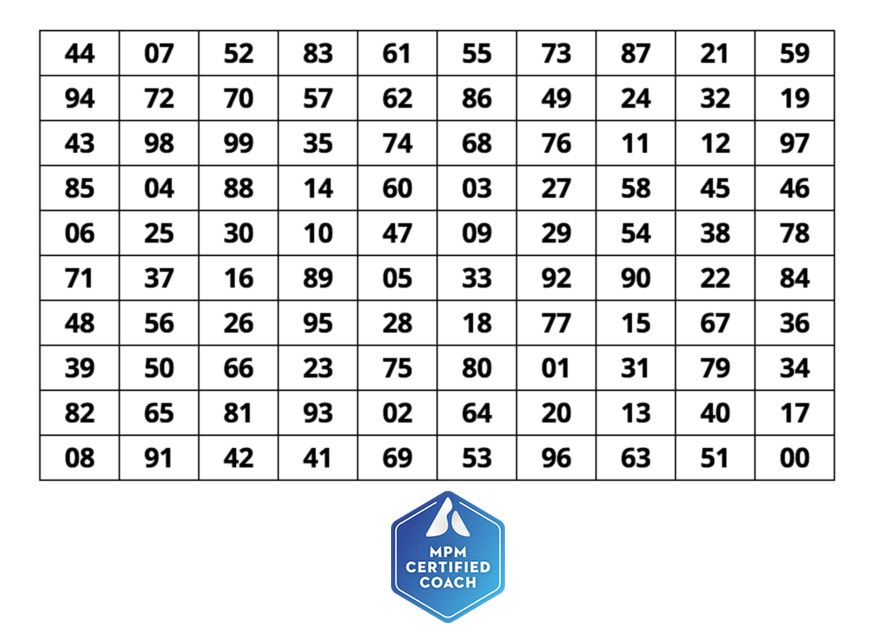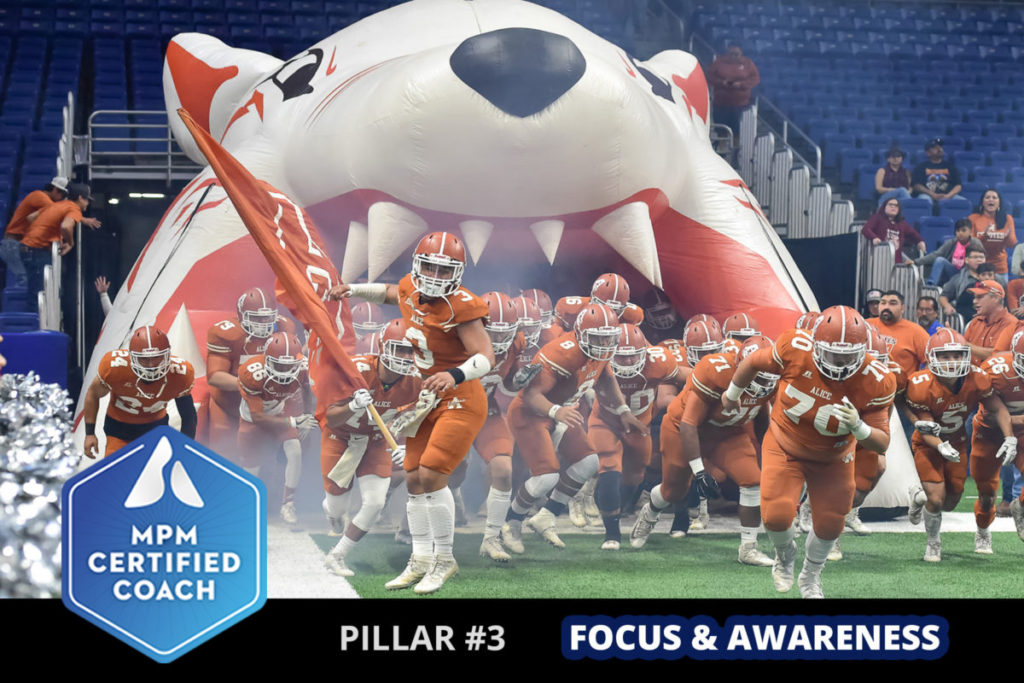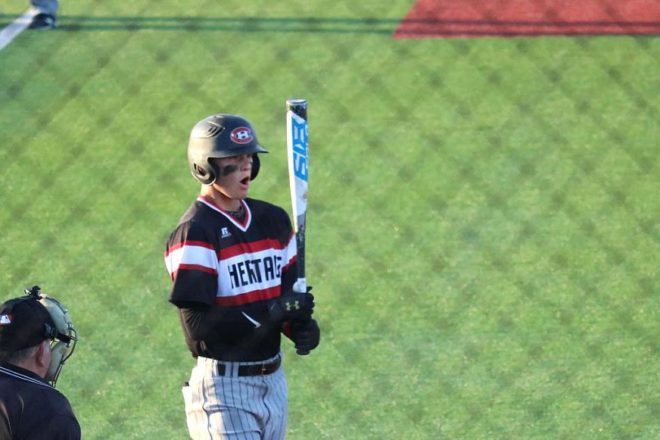
Get this FREE MiniCourse to help your athletes perform their best, overcome any obstacle, and stay focused under pressure.
During the 2018-2019 college football playoffs, as Nick Saban and Dabo Sweeney attributed much of their success at powerhouse football programs Alabama and Clemson to the ability to help their team focus, the emails started rolling in.
A month later, Bill Belichick of the Super Bowl Champion New England Patriots spoke about the importance of each player relentlessly focusing on doing their job to the best of their ability.
More and more emails flooded in from coaches all across the country. Coaches of all sports, at all levels, hungry to know the key to developing this kind of unshakeable focus in their athletes.
Any coach worth their salt knows the importance of focus. It’s a mantra repeated so often, athletes know the words before they leave your mouth…
Focus on the fundamentals.
Focus on proper execution of the exercise.
But over the years as a mental performance coach, I’ve noticed something interesting about controllable and trainable skills like focus.
Many coaches view them more as something worthy of lip service, and less as trainable skills that should be prioritized just like any physical or fundamental aspect of sport and fitness.
If a strength coach walked around the weight room yelling “Lift more weight!”, but never actually provided cues for proper execution of an exercise, you’d think he was crazy, right?
Missing an important element necessary for success at the least.
Of course.
Yet that’s how many coaches approach mental performance skills—like focus—and it’s sabotaging their athletes’ performance and the quality of their coaching.
Telling clients or athletes to “focus!” more won’t do squat unless it’s accompanied by intentional training strategies that can help develop this crucial skill.
Elite coaches like those mentioned earlier know this.
And you can guarantee the emphasis on focus isn’t something reserved for “playoff” time. Great coaches talk this way and train the mental side of performance from day one.
3 STRATEGIES FOR FORGING UNSHAKEABLE FOCUS
The remainder of this article will outline three strategies you can use to forge and build a better focus with anyone you coach.
These strategies pack a powerful punch because not only are they brutally effective, they are so simple that you can use them immediately with your clients and athletes just like I have for over 10 years as a mental performance coach.
STRATEGY #1: TRAINING WITH CONCENTRATION GRIDS
Concentration grids have been utilized by professional coaches and athletes for years, providing a great way to train focus whether you are an athletic coach or fitness professional.
Major League Baseball pitchers Roy Halliday and Jamie Moyer have referenced the benefit of using grids while working with the late mental performance coaching legend Harvey Dorfman.
So what are they? Concentration Grids are a 10×10 grid with numbers 00-99. You simply have your clients start a timer or watch and then cross off numbers 00-99 in chronological order.

I prefer to use a Sharpie ® marker and cross off the number completely.
Simple enough, right? Don’t let the simplicity fool you.
When done consistently, this mental performance training method is very effective for improving one’s focus. Plus, there are a few ways to take things up a notch and apply “progressive overload” to improve results:
- Make it a competition. Keep track of your time and have your clients compete with themselves and others.
- Change up your delivery method. Try having them go backward from 99-00, or do every even number or every odd number.
- Change up the execution. Another option is to give a specific time frame to work on the concentration grid to see how far they can get.
These variations work so well because they mirror the demands of focus required during competition or intense exercise.
And don’t be afraid to personalize the setup.
For example, when training or coaching a basketball athlete, you may utilize concentration grids in 30-second “reps” to mimic the time frame consistent with a typical possession or the shot clock used in that sport.
When I work with world-champion MMA Fighters, I will have them do 5 grids for 5 minutes with 1 minute of rest in-between to simulate the intense focus they will need for a 5-round championship fight.
You get the idea.
How to use it: I’ve had a lot of success utilizing concentration grids before, during, or after athletic practice. For strength coaches, having clients or athletes complete concentration grids during rest periods is another great option.
The most important thing is that you do it—and you do it consistently. This will help your clients and athletes learn to build a better focus.
See it in action: Mental Performance Mastery (MPM) Certified Coach Paul Goodman is a Chicago based Strength and Conditioning Coach who works with athletes of all levels. One such athlete, Chicago Blackhawks Defenseman Connor Murphy, has noticed an improved focus on and off the ice from his use of concentration grids.
Here’s what he had to say about it:
“Concentration grids are a simple, effective and competitive way to warm up your mind and your focus. It’s like a transition from being a person to being a player. If I were a college or high school athlete, a way to transition from being a student to being an athlete. I’ve noticed that my focus both on and off the ice is a lot better since I started doing concentration grids, being intentional about my mental performance training and having a daily routine and meditation practice. You can for sure train and improve your focus just like the physical fundamental aspects of your sport.”
You can also learn more about concentration grids and compete with yourself on my new concentration grid online by clicking here
STRATEGY #2: TRAINING THE DEEP BREATH
If you watch any professional sport or the Olympics, look closely and you will see athletes in every sport utilize a deep breath to quiet their mind and focus in the present moment during competition.
You will recognize the basketball player at the free throw line taking a breath before sinking the game-winning free throw.
The NFL field goal kicker taking a deep breath before attempting the game-winner as time runs out.
The coach asking his or her team to take a deep breath at the start and end of a timeout in crunch time.
Or the MMA trainer getting this athlete to calm down and breathe in the corner between rounds.
The intent here is straightforward: Train those you coach to pause and take a deep breath any time they’re about to do something important.
Used consistently, the deep breath can help override the tendency to let fear, nerves, or distraction keep our athletes from performing their best when they need it most.
And that’s HUGE!
When an athlete develops the awareness to pause and take a deep breath, they are sending a message to every fiber of his or her being that says, “Hey, this is important. Block out the distractions, lock into the moment and task at hand—FOCUS!”
My experience working with the world’s top performers over the past decade tells me that an athlete who uses the deep breath consistently outperforms someone who doesn’t—every single time.
The act of pausing and taking a deep breath also has a calming effect from a physiological standpoint, making this strategy just as important to cultivate focus and promote peak performance during those high-pressure situations from a physical standpoint.
How to use it: The deep breath has become a critical part of coaches and athletes in performance focus routines and also a critical part of managing the stress of day to day performance in the gym and in life.
For that reason, it’s important to coach clients to use the deep breath any time they are about to do something important that they know requires maximum focus.
From being part of a pre-set routine in the weight room to preparing to step up to the free throw line when the game is on the line, the deep breath is an incredibly powerful training tool for developing focus.
See it in action: In the video below, watch MMA Coach Greg Jackson utilize the deep breath training method to get UFC Champion Georges St-Pierre to calm his heart rate and mind down between rounds.
Meditation is a practice that takes us beyond the noisy chatter of the mind into a place of stillness and silence.
While many tend to think there are spiritual or religious implications involved with meditation, it certainly doesn’t have to be that way.
Regardless of beliefs, meditation can be used to experience inner quiet and the numerous physical and mental health benefits of the practice–including lowered blood pressure, stress reduction, and restful sleep.
A short 3-5-minute daily meditation practice can do wonders for your clients’ or athletes’ ability to focus and also recognize when they get distracted so they can refocus back to the task at hand.
For those new to this as a practice, it may seem odd, awkward, or like it’s not worth the effort, but I assure you this is backed by science and real-world experience as an extremely powerful tactic for improved focus when done consistently.
There are many, many different ways to practice meditation, and a quick google search will provide a plethora of options to choose from.
However, I realize this can be overwhelming, so below I will provide an example of a simple, effective meditation script I use often.
How to use it: There’s really no “right” or “wrong” way to use meditation as a training method for developing focus. In the end, whatever setup will allow the person you’re working with to practice it consistently is what works best.
Most of the coaches, clients, and athletes I work with include a simple meditation practice as part of their daily quiet mind and focus training routine.
See it in action: One of the mental performance skills we emphasize within the Marquette basketball program is a “one possession at a time” focus practiced by a “one breath at a time” meditation. During the NCAA Basketball tournament, CBS did a great behind the scenes piece on Big East Player of The Year Markus Howard and his use of meditation.
The meditation I have used with clients as part of their daily mental performance routine for building better focus is quite simple. You can see an example of the meditation method I use in the video below:
Pro tip: Use the voice memos app on your phone to record a meditation session when with your clients/athletes, and then text them or airdrop the audio so they can use it on their own.
Final Thoughts
When it comes to developing mental performance skills like focus, consistency is key.
If there’s one thing you take away from this article, let it be this: Failure to intentionally train focus leads to failure in performance.
If you want to see the tremendous payoff that cultivating stronger focus can deliver, commit to putting in the work and include these strategies in your coaching on an ongoing basis.
Further reading: If you want to learn more about how to better coach focus and awareness in your clients and athletes, check out my article on How To Build The ‘Awareness Muscle’ To Stay Calm Under Pressure, Fight Through Adversity And Make Better Decisions (Even When It’s Hard).
Your next move: If you want to take your coaching to the next level, you need to master the mental side of performance
Knowing the what, when, and how of coaching mental performance—and trying to fit all of the pieces together on your own—can be burdensome.
That’s why I created the Mental Performance Mastery (MPM) Certification. Inside the MPM Certification, I’ll teach everything you need to add this crucial skill set to your coaching toolbox.
You will learn how to help your athletes and clients overcome mental barriers that trip them up and build the habits, mindset, and behaviors they need to be at their best when it matters most.
Not only will you develop a deep knowledge of the ten most valuable mental skills needed for mental performance mastery, but you’ll also have a proven method for consistently and predictably developing these skills in those you coach.
The MPM Certification will open to new students for a limited time only twice a year (May and November). Join the free Insider’s List below to save $200 on the certification and be the first to know when it goes live.


